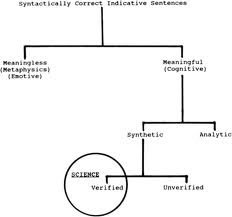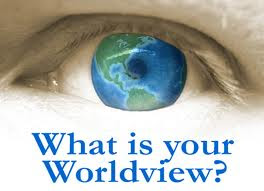Wednesday, May 16, 2012
The World Is Alive As An Organism And At The Same Time Governed By Law
Preface And Preliminary Remarks--Structuralism Paper continued
Five Scientifically Identifiable Worldviews
April 1994
The logical positivists, from the Vienna circle of Carnap, Frank, Reichenbach,
And others, believed that science is not about discovering the true nature of
reality; rather, for this school of thought, the significance of science is
found in the establishment of the "connections between mathematical and physical
signs (which they call symbols) that can be elaborated through the external
senses and scientific instruments, concerning that experience which appears to
us as the external world." [ Seyyed Hossein Nasr, l968, p.20] Science, from this
perspective, is more about the validation of the meanings we attach to our
experience of the world, and less about validating the real (physical) world
that we inhabit.
Along these same lines, the operationalist worldview of science (Bridgman) ties
the significance of scientific knowledge to the operations that define
scientific concepts. In so far as these operations produce reliable data, the
operations, according to this viewpoint, become the ultimate matrix for
scientific knowledge. However, the viewpoint of another group of scientists
(Poincare, Duhem), contrary to the positivism and operational schools of
thought, believe that scientific concepts are irreducible mental concepts that
are subjective in nature. Science, for this group, becomes a way to
scientifically communicate the content of repeatable and reliable experiences.
Scientific knowledge, from this perspective, is conceived more as a language for
communication then knowledge of objective reality. Also, contrary to the
positivistic school of thought, the neo-Kantians (Cassirer, Margenau), hold to
the notion of irreducible concepts of science, but treat these concepts from
within the context of "as if" they existed. In this way scientific constructs
become regulative in nature and are subject to alteration as experience
dictates. This point of view stresses an ever increasing knowledge of, at
bottom, an unknowable universe.
The fifth point of view concerning science is the logical realist viewpoint,
which embraces a realistic interpretation of mathematical and physical
constructs (Northrop, Grunebaum). The emphasis here is placed on the
correspondence between the concepts of mathematical physics and a real,
knowable, aesthetic universe. Nasr informs us:
"Northrop especially seeks to show that both the Newtonian-Kantian world of
mathematical physics and the qualitative vision of nature emphasized by Goethe,
which he calls natural historical, and whose knowledge is immediate and
aesthetic rather than abstract and mathematical, are ultimately real. The world
is order or cosmos rather than chaos, one that is alive as an organism and at
the same time governed by law. But once again in this school it is emphasized
that the knowledge derived from the sciences is the way that leads us to an
ultimate knowledge of things. There is no hierarchy of knowledge, only knowledge
of the corporeal domain which determines knowledge as such." [Seyyed Hossein
Nasr, The Encounter Of Man And Nature, l968, p.20]
Subscribe to:
Post Comments (Atom)







No comments:
Post a Comment